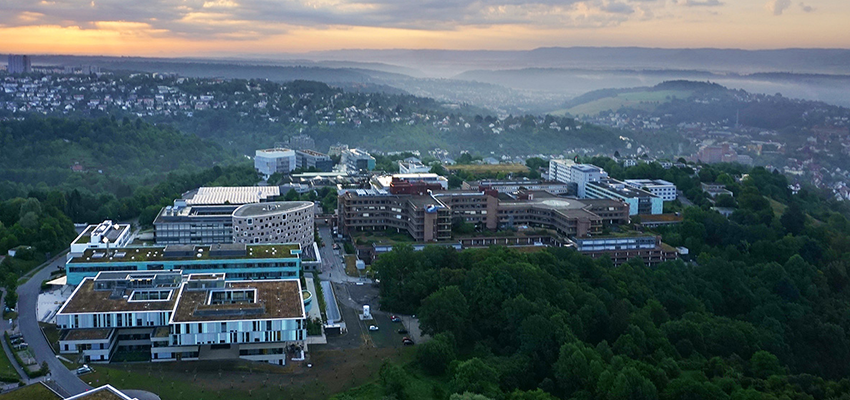Karriere
am Klinikum & Medizinischer Fakultät
PhD student (f/m/d)
Research Center M3, index number 6699


 Part-time
Part-time65 %
 Limited:
Limited: 3 - 4 Jahre
 Start of work:
Start of work:as soon as possible
 Application deadline:
Application deadline:08.10.2025
- The applicant will focus on Metabolic dysfunction-associated steatotic liver disease: From understanding the pathomechanisms to translation into tailored therapeutic concepts
- Molecular, spatial, and cellular mechanisms of metabolic reprogramming through necroinflammation in MASH
- An excellent recent university degree: MSc/MRes (also candidates about to obtain such a degree are welcome to apply) or equivalent
- Strong motivation and high interest to join and work closely with other team members
- Excellent communication skills in English
- Interest and creativity to shape your own thesis project
- Energy and power to follow your scientific interest in the frame of chronic inflammation and cancer
Benefits
- A 3-year doctoral work contract + additional funding (+ 1 year) if needed
- A vibrant and international research environment
- An efficient supervision and mentoring program
- Ability to gain knowledge in novel technologies and soft skills
The newly built M3 (Malignome, Metabolome, Microbiome) Research Center affiliated with University of Tübingen and the German Cancer Research Center (DKFZ). Our laboratory “Chronic Inflammation and Cancer” led by the director of the M3 Research Institute (Tübingen) has a long-standing interest in studying pathways involved in chronic inflammation and metabolic dysregulation in cancer and inflammatory diseases, specifically MASLD dysfunction metabolism associated liver disease but also smoking induced lung cancer as well as organ cross talk in the context of hepatitis and skin desease.
For example, we have contributed in the understanding of the role of adaptive and innate immunity in fatty liver disease and subsequent liver cancer (Haybeck et al., 2009 Cancer Cell, Malehmir et al, Nature Medicine 2019, Wolf et al. Cancer Cell 2014, Gallage et al., Cell Metabolism 2024) as well as demonstrated that liver cancer induced by MASLD is resistant to immunotherapy (Pfister et al. Nature 2021). We have also contributed to the understanding of the role of DNA damage pathways in liver cancer (Boege et al. Cancer Cell 2017), how chronic mitochondrial dysfunction and ROS results in cholangiocellular carcinoma (Yuan et al. Cancer Cell 2017) and how chronic inflammatory pathways drive age-related gliosis (O’Connor et al. Cancer Cell 2019).
Index number: 6699
Including CV and cover letter
Application deadline: 08.10.2025


.png)

.png)




